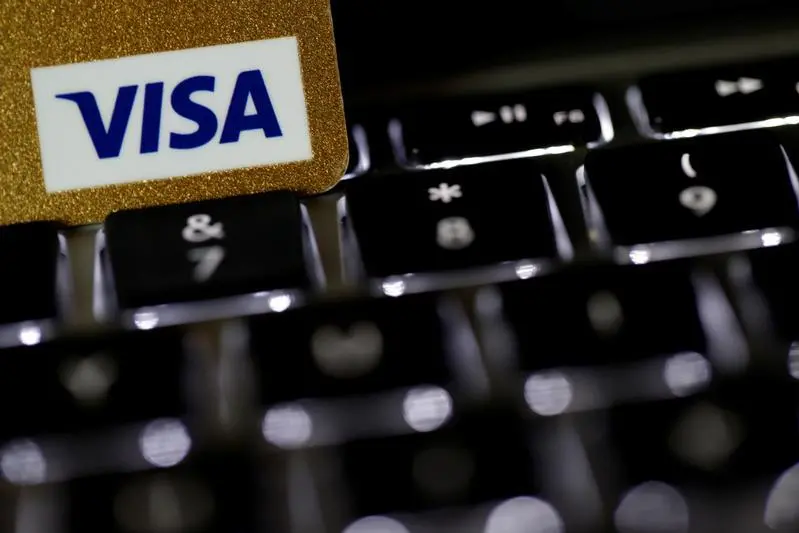PHOTO
NEW YORK - As American consumers have ramped up their personal credit, U.S. banks have happily gone along for the ride. Almost $1 trillion of household debt is on credit cards, a business that has generated handsome returns for lenders like Citigroup, JPMorgan and Bank of America. But Covid-19 is taking the shine off a nice earner.
Credit cards make up a quarter of Citi’s revenue and a slightly lower share of its loans. JPMorgan has a similar sized credit-card portfolio that accounts for only 15% of its larger stock of loans. Bank of America and Wells Fargo have smaller card businesses but all have grown their balances in the past five years. For good reason: The yields on credit cards tend to be above 10% on average, twice the return on regular loans. And for years, consumers' credit has been so good that JPMorgan boss Jamie Dimon called it “pristine.”
The global pandemic is changing that, as earnings from Citi and BofA on Wednesday illustrate, as well as JPMorgan and Wells Fargo's reports a day earlier. Rising unemployment means hardship. BofA said 80% of customer requests to delay payments relate to its credit-card business. The amount that’s more than one month overdue hasn’t risen at most big issuers, but they are already preparing for that. JPMorgan is now cushioned against a potential 9.7% loss. At Bank of America, it’s 8.3%.
Moreover, card businesses suffer when people don’t spend. In a lockdown they can’t, but afterwards they may not want to. Wells Fargo said card purchases fell 15% in March compared with a year earlier. Bank of America noted that spending growth on debit and credit cards has fallen from nearly 8% last autumn to 2%. After the financial crisis, total credit-card debt declined by one-fifth within three years, according to New York Federal Reserve data.
For banks, the good times justify the low returns in tough periods. But the difference is large. As a rough rule of thumb, credit-card loss rates have matched the level of overall unemployment in crisis periods, so as joblessness passes 10%, many card portfolios will stop making money. Banks and their customers face an old-style consumer downturn with a modern reliance on plastic.
CONTEXT NEWS
- Citigroup on April 15 reported $2.5 billion of earnings for the first quarter, 46% less than a year earlier, as it took a charge for expected losses caused by the new coronavirus pandemic. Its earnings per diluted share of $1.05 compared with $1.87 a year earlier. Analysts had expected earnings per share of 83 cents, according to Refinitiv.
- Bank of America on the same day reported first-quarter net income attributable to common shareholders of $3.5 billion, down by roughly half from the same period in 2019. Earnings per share were 40 cents, compared with a consensus estimate of 48 cents a share, according to Refinitiv. The bank's revenue for the period was $22.8 billion, and its annualized return on common equity was 5.9%.
- Citi took a $7 billion hit for credit losses and provisions compared with $2 billion a year earlier, and BofA took a $4.8 billion provision versus $1 billion in the first quarter of 2019. A day earlier, JPMorgan and Wells Fargo also took large charges.
- Bank of America said it was helping customers defer payments during the crisis and that 80% of deferral requests related to credit cards. It said that 3% of credit-card accounts and 5% of balances had deferrals in place.
(Editing by Richard Beales and Amanda Gomez) ((john.foley@thomsonreuters.com; Reuters Messaging: john.foley.thomsonreuters.com@reuters.net))





















